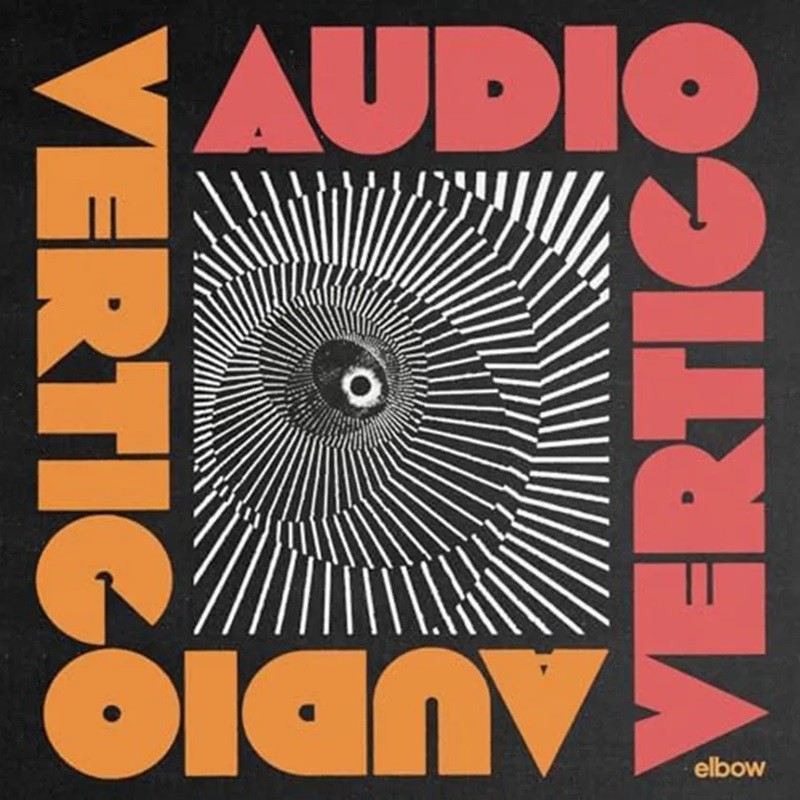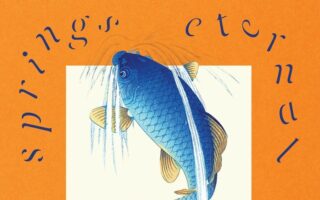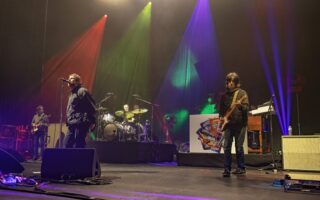

Audio Vertigo is another good, rather than great Elbow album. It seems churlish to bemoan that.
Even within the broad church of alternative rock, Elbow are a curious, difficult to define band.
They are not a singles band although they have a handful of modern classics to their name, enough to make them a recurring fixture in Britain’s arenas and the summer festival circuit, in desirable late afternoon billings.
They don’t feel like an album-oriented act either: the stars aligned for 2008’s The Seldom Seen Kid, but aside from that lone masterpiece their albums, while never bad, have at times felt patchy and unsatisfying to listen to in full.
The production, handled primarily by Elbow’s keyboardist Craig Potter, can sound laboured and rather colourless, and the performances rarely feel spontaneous.
In truth, Audio Vertigo shares some of these characteristics: after an initial flurry of tracks that successfully live up to frontman Guy Garvey’s pre-release promo promises of ‘seedy, gnarly grooves’, things settle down considerably, and the material assumes more a familiar shape.
The songwriting becomes less melodic and concise, and the sound less urgent and full-bodied for much of the rest of the album.
Garvey returns to familiar thematic concerns with his lyrics: Very Heaven looks back fondly and with good humour on adolescence. It’s no Lippy Kids, but there is something appealing in Garvey’s consistency, his commitment to remaining open-hearted and exuding warmth with carefully chosen words.
Knife Fight is an ingenious metaphor for communication breakdown between feuding lovers, Her To The Earth is wide screen melancholia of the sumptuous, My Sad Captains variety (‘The world has given me arms for you’) and From The River makes good use of its extended runtime as the album’s closing track, touching on aging, mortality, fatherhood, the passage from innocence to experience as viewed from the outside, and finding solace in the natural world.
Repeat listens reveal this material to be strong stuff, the best of it worthy of notice alongside the more memorable album tracks from previous Elbow efforts.
However, the first three tracks constitute such a bold, confident start to the album that many listeners might register regret at the loss of that momentum as it proceeds.
Side two opener The Picture is exuberant and impassioned, and penultimate track Good Blood Mexico City updates The Smiths to fairly rollicking effect.
But against the stately pace of the other tracks, and with the baffling inclusion of Poker Face and Embers Of The Day, two unfinished songs that sound like demos and cut off suddenly, there is not enough of a sustained attack in the material to equal the rush of the first few tracks.
Lovers’ Leap has a clearly defined chorus, but the melody is an extension of its verses which are all tension, the rhythm section curiously jittery as on so many other Elbow songs.
The tension is only released with a coda, which is a fragment taken from an entirely different song – a half-time ballad drenched in that sleazy guitar sound Alex Turner played around with on the last Arctic Monkeys album, conjuring images of moustaches and wide lapels.
Meanwhile, Balu is an indie rock banger of a magnitude not heard from Elbow for at least a decade, but its independent spirit is evident in its lack of a chorus. It just has a great, cascading keyboard riff instead, like the audio equivalent of a laser light show.
Perhaps best of all is the opening track Things I’ve Been Telling Myself For Years, which also doesn’t have a chorus or any other structural signposts except a short but effective guitar break.
The broiling tension of the music is primarily just a backing for Garvey to spit out some of his most entertaining lyrics yet, castigating himself for egotistical self-delusions (‘Here’s to walking in every room like ascending for an Oscar’.)
In short, these early songs that work so well, and have the listener hoping for more of the same, are not outliers for Elbow.
Lovers’ Leap and Balu even have that unusual use of brass à la early 2000’s Radiohead that is such a part of their sound. What is unusual about them is the gusto with which they are performed, and the way the band commits to a darker, slinkier aesthetic.
Ultimately, Audio Vertigo ends up as another good, rather than great Elbow album. It seems churlish to bemoan that. After all, this is album number 10, 23 years on from the release of their debut, and never in that time have Elbow even flirted with mediocrity.
But as always with Elbow, by proving how great they can be, one wishes they could only manage it more often.







